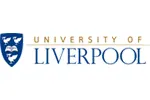We're moving! This site will be relocating to goingto.university in 2026. Please update your bookmarks to the new address.


the United Kingdom
University of Liverpool| The award | How you will study | Study duration | Course start | Domestic course fees | International course fees |
|---|---|---|---|---|---|
| MSc(Eng) | Full-time | 1 year | September | GBP 5135 per year | GBP 15251 per year |
The MSc (Eng) programme in Simulation in Aerospace Engineering is designed for engineering and science graduates who want to specialise in aerospace simulation techniques and research methods.
You'll develop an advanced knowledge of key aerospace engineering simulation techniques including:-
We'll train you in a range of commercial packages and state-of-the art facilities for parallel computing, piloted flight simulation, and wind-tunnel experiments.
On graduation you'll have gained valuable practical experience of analysing modern aircraft systems using simulation, equipping you perfectly for a career in research centres and the aerospace industry.
The MSc (Eng) in Simulation in Aerospace Engineering is a 12month, full-time programme, and starts in late September of each year. It consists of a taught component, which runs over two 12-week semesters from September until May, and an individual research project, which starts in the second semester and continues until September. In the taught part of the programme students take five compulsory modules (totalling 90 credits) and a number of optional modules (totalling 30 credits). Active learning is central to all modules. Students participate in lectures, tutorials, and laboratory sessions, carry out individual and group project work, and use the University’s virtual learning environment. Most modules span both semesters (giving students the opportunity to study thoroughly the topics) and are assessed continually or in combination with an examination.
ProjectsThe project contributes 60 credits to the programme. Preliminary work is undertaken in semester 2, and becomes full-time from June onwards. The project is examined by dissertation and presentation, by the supervisor and at least one internal examiner. The dissertation should provide evidence of in-depth understanding of key simulation techniques, mastery of research methods, ability to apply simulation for solving engineering problems, and assessment of outcomes.
Below are some suggested courses at other providers that you may also be interested in:
Graduate Diploma of Engineering (Civil: Structural) Graduate Diploma
Engineering Institute of Technology
Find out moreGraduate Diploma in Landscape Architecture Graduate Diploma
University of Technology Sydney (UTS)
Find out moreGraduate Diploma of Counselling Graduate Diploma
Australian College of Applied Psychology (ACAP)
Find out moreIf you do not meet the entry requirements for this course then consider one of these courses from another institution:
There are 424 other courses listed from University of Liverpool. A selection of these are displayed below:
Advanced Chemical Sciences (Nanoscale with Interfacial Science) MRes, MSc
University of Liverpool
Find out moreAdvanced Chemical Sciences (Nanoscale with Materials Chemistry) MRes, MSc
University of Liverpool
Find out moreAdvanced Chemical Sciences (Organic and Biomolecular Chemistry) MRes, MSc
University of Liverpool
Find out moreAdvanced Chemical Sciences (Organic Chemistry with Catalysis) MRes, MSc
University of Liverpool
Find out moreJoin the StudyLink email list and never miss a chance to turn your study abroad dreams into reality!
